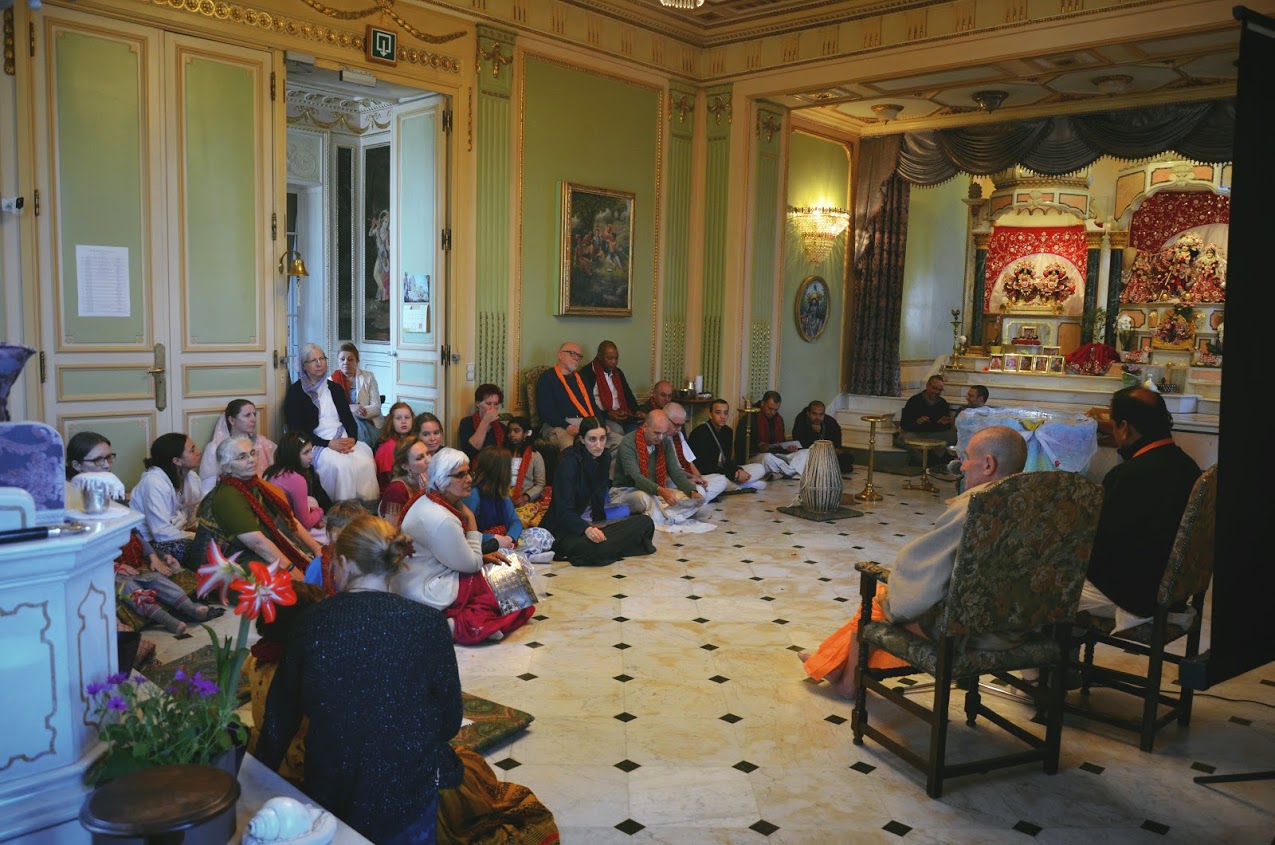After the temple lecture is finished, is it better to ask a question or give a comment? Asking questions is a traditional way of interacting between the audience and the speaker. But the reality is that more and more lecturers, by default, invite the public for comments also. And now we have Questions and Comments sessions.
There is a clear distinction between the two, and we should be aware of it since it can help us in our spiritual progress. We speak about the distinction between a question or asking for something we do not know or we are not so clear about. With a question, we are empowering the speaker to tell us more conclusive truth about something we want to have more insights into. Here the speaker is the authority.
During the 7-days discourse between Sukadeva Gosvami and sages at the Naimisaranya, the sages were not in the mood of commenting on what they heard. They asked the questions. Repeatedly. When Arjuna decided to hear from Krishna in Bhagavad Gita, he also stopped with his comments. When Srila Prabhupada was speaking, who would give any comment? Questions were asked only. In all these cases, commenting would not be proper. It would be Maryada-vyatikrama, transgressing the Vaishnava etiquette and stepping over the seniors. So, when we hear from the Vaishnava, we want to question them, and we want to ask them more since that is the way to get insight into the depths of Krishna Consciousness.
Disciples would ask Srila Prabhupada the same questions repeatedly, and each time, Srila Prabhupada would give a different, more amazing answer. An amazing example of sublime spiritual power coming from asking the questions is perfectly illustrated in the book “Perfect Questions Perfect Answers,” where young Bob Cohen is asking questions to Srila Prabhupada. Questions are never discouraged. Caitanya Caritamrita reveals that the truth is hidden in the hearts of devotees and humble inquiries bring in all kinds of realization and insights. All that is possible via taking shelter of the questions.
So, are comments forbidden? No, comments for sure have their place also. Comments are relevant amongst the equals. We can comment after the class if that will make the lecture more complete. For instance, we can add some factual information that may be missing. Recently we heard that Srila Prabhupada never went to the cinema. Someone in the audience commented that he went at least once as a small boy with his father to see the King Kong movie. So, a comment like that helps us to get more complete information. But too many comments could stop us from hearing the speaker’s realization, and the speaker is Vyasadeva’s representative.
Questions and comments are not at the same level, but both can serve the purpose if properly utilized. But if need to choose, I would opt for the questions.
- Stolypin’s necktie: The Iron Fist that Hanged Russia’s Democracy Dreams (for loooong)
- Essence of Caitanya’s teaching
- Crazy figures of Dresden bombing (13.02.1945)
- Transcendental Love in Gaudiya Vaishnavism: Gaura Purnima 2024 – Hari Parshad dasa
- The Number 108: Unlocking the Mysteries of the Distances between Earth, Moon, and Sun
4 5 art bhagavad body book business change conscious control envy failure future gita goals God health help humility improvement krishna leader leaders leadership life love management manager mind organisation people priority question right spirituality steps story stress success swami Tips trust values war work
